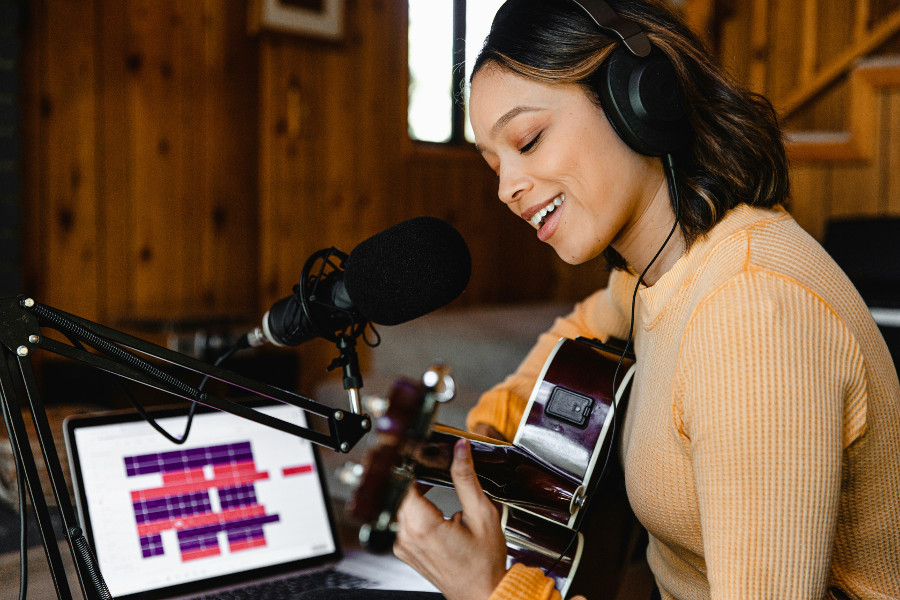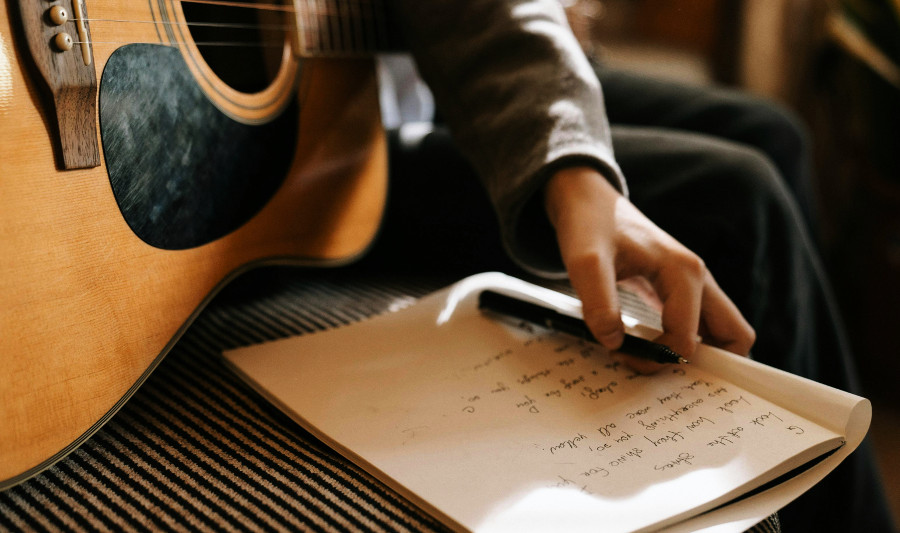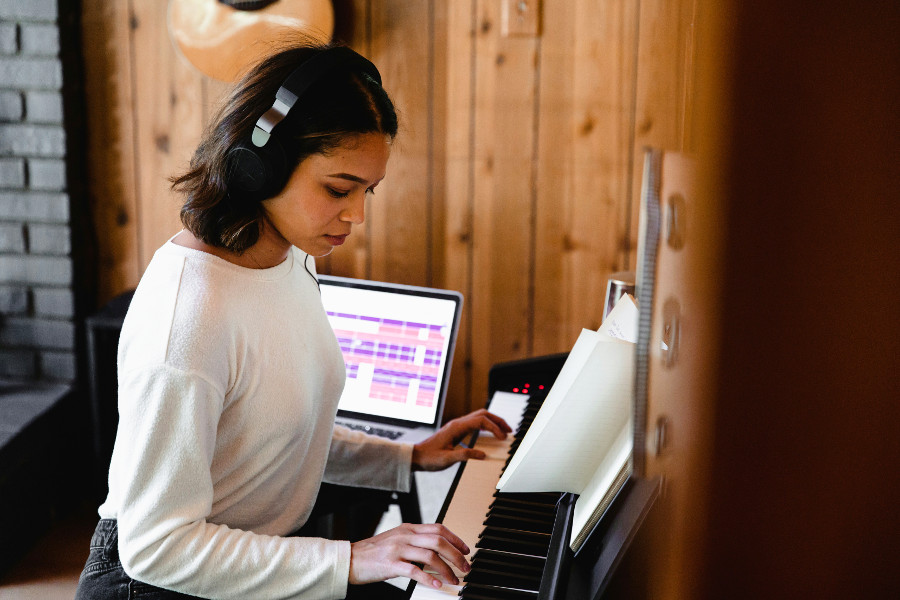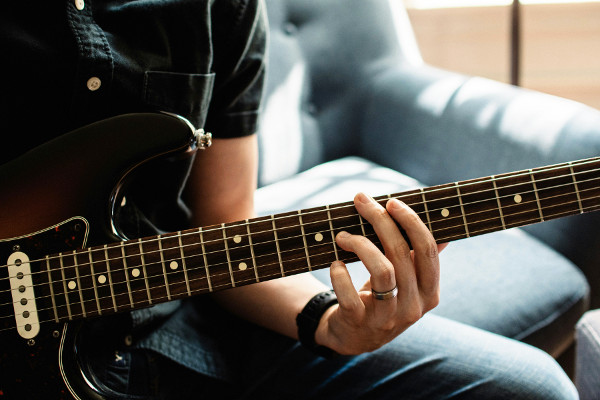How to Write a Simple Song as a Total Beginner? - Songwriting and Composing Made Easy
Writing a simple song might seem daunting at first, but it doesn't have to be complicated. Whether you're a beginner or just looking to sharpen your skills, this guide walks you through everything you need to know. From choosing a theme to structuring your song, we've got you covered. With tips on writing catchy lyrics, selecting chord progressions, and making your melody unforgettable, this resource is perfect for anyone ready to dive into songwriting. So grab your guitar, piano, or pen, and let’s get started on creating your next hit!

What are the basic steps to writing a simple song?
Writing a simple song is all about capturing your thoughts and feelings in a way that resonates with others. Start by choosing a theme or emotion that speaks to you – something you’re passionate about or something you want to share. Then, build the foundation with a simple chord progression, something easy to follow, like the classic 1-4-5. After that, let the lyrics come naturally. Keep things simple and repeat phrases that stick. A catchy, memorable melody is key, and don't forget to structure it in a way that flows: verse, chorus, repeat.
Can I write a song without knowing music theory?
Absolutely! Music theory can be helpful, but it's not required to write a great song. Many famous songwriters and artists have written songs without formal training. Start by experimenting with simple chords and melodies – trust your ear to guide you. If you're stuck, listen to your favorite songs and try to figure out what makes them tick. Over time, you might naturally pick up some theory, but in the beginning, let your creativity lead the way.
That said, if you want to develop your songwriting skills and become more conscious about music, instead of just
relying on your instincts, sooner or later you should consider to deepen your knowledge. Learning the basics of music
theory is a good foundation for artistic success in songwriting. Here are a couple of places where you can learn more about music for free:
- r/musictheory sub on Reddit, especially the Wiki section
- The Gear Page forum for guitar
- Piano World forums for piano, keyboard
How do I come up with a song idea?
Finding a song idea is about tapping into your world, your experiences, and your emotions. Think about what excites you, what bothers you, or something you’ve observed. It could be anything – love, a moment, a person, a place. Try journaling your thoughts and feelings, as this can be the perfect seed for a song. If you're still stuck, just focus on one emotion – anger, joy, sadness – and see where it leads you. Inspiration is everywhere; you just need to pay attention to the world around you.
What are some good tips for writing song lyrics?
Song lyrics are your way of speaking directly to the listener, so don’t hold back. Be authentic and honest with your words – this is what makes a song relatable. Use simple language that paints a vivid picture, and don’t overthink the rhymes. Focus on the message, and make sure your chorus sums up the heart of the song. Keep it concise, but allow room for creativity. Writing every day will sharpen your skills, and soon, you'll find your unique voice as a songwriter.
How do I choose a chord progression for my song?
Chord progressions are like the skeleton of your song – they hold everything together. Start with a simple progression, like I-IV-V, which works perfectly for most genres. Once you’ve found a base progression, feel free to experiment with minor chords or variations to bring out the song's mood. Trust your ear and let the progression complement the melody and lyrics. Don’t be afraid to try new things, and remember: simple is often the best way to go.
How do I structure a simple song?
A simple song structure can be easy to follow, yet powerful. Think of it like a story: you have the introduction, the body, and the conclusion. Start with a verse to introduce your idea or theme, then hit the listener with a catchy chorus that emphasizes the main message. After that, repeat the verse-chorus pattern. You can add a bridge for a bit of variety before returning to the final chorus. Keep things flowing smoothly, and you’ll have a song that sticks.

Should I write the lyrics or the melody first?
There’s no right answer here, but it all comes down to what feels best for you. Some songwriters find it easier to begin with a melody, as it helps guide the lyrics. Others might prefer to write the lyrics first, allowing the words to shape the rhythm and melody. Try both approaches and see what clicks. The important thing is to let the two – lyrics and melody – work in harmony, with each supporting the other.
How do I make my song more memorable?
A memorable song is one that sticks with you long after the first listen. To make yours stand out, focus on a catchy chorus. This part should be simple, repetitive, and emotionally engaging – something people will hum all day. Keep the melody easy to follow, and let the lyrics capture universal emotions. Add variety in dynamics, tempo, or rhythm to keep it fresh. When you get the balance right, your song will leave a lasting impression on anyone who hears it.
How long should a simple song be?
When it comes to song length, less can often be more. A simple song usually runs between 2.5 to 4 minutes, which is the perfect amount of time to get your message across without losing the listener’s attention. If it’s too long, it might lose its impact, and if it’s too short, you might not have enough time to fully develop the idea. Stick to a length that feels right for the song’s content, and don’t be afraid to cut out anything unnecessary.
What is the easiest song structure for beginners?
The best structure for beginners is the verse-chorus-verse-chorus format. This is a straightforward, proven structure that allows you to introduce your idea in the verses and then repeat the emotional core of the song in the chorus. The repetition makes it easy to remember and helps build the song's emotional impact. As you get more comfortable, you can play around with variations, like adding a bridge or changing up the order, but this basic structure is perfect to start with.
How can I make my song sound emotional?
The key to making a song emotional is to infuse it with your own feelings. When writing, focus on being authentic, and don’t shy away from vulnerability. Use imagery in your lyrics to paint a picture of the emotion you want to express. A slower tempo or a minor key can heighten the emotional effect, while contrasts in dynamics – soft verses followed by loud choruses – can amplify the intensity. The emotion comes from within, so trust yourself to create something that resonates.

How do I write a catchy chorus?
Writing a catchy chorus is all about simplicity and repetition. Start with a central message that sums up the song’s core idea, then match it with a melody that’s easy to remember. Use repetition, but make it fresh – this will stick with your listeners. The chorus should contrast with the verses, whether it’s in terms of rhythm, pitch, or dynamics. When you get the balance right, your chorus will be the part everyone sings along to.
How can I develop my song ideas further?
To take your song ideas further, you’ll need to dig deeper into the emotions or concepts you’re exploring. Add more depth by using metaphors or vivid imagery. Don’t be afraid to change the tempo, key, or chord progression if it better suits the message you’re conveying. Collaborating with others can also open new doors and give you fresh perspectives. Most importantly, keep writing and experimenting – ideas evolve with time and effort.
What tools or software can help with songwriting?
When it comes to songwriting, technology can be your best friend. Digital audio workstations like GarageBand, Logic Pro X, and Ableton Live allow you to create and arrange music with ease. For lyrics, apps like Evernote or Google Docs are perfect for organizing and editing. There are also websites like Chordify and Hooktheory that can help you find new chord progressions. Whether you're a beginner or an expert, these tools can help bring your songs to life.
How do I know if my song is good?
Knowing if your song is good comes down to how it makes you feel. Does it resonate with you emotionally? Does it have that “something special” that you can’t quite put into words? Trust your gut, but also seek feedback from others. Let fellow musicians or friends give you their thoughts. Don’t be afraid to make adjustments; even the best songs often go through several revisions. If it connects with you and others, then chances are, it's a good song.
Good luck with your adventures in writing a song for fun.



